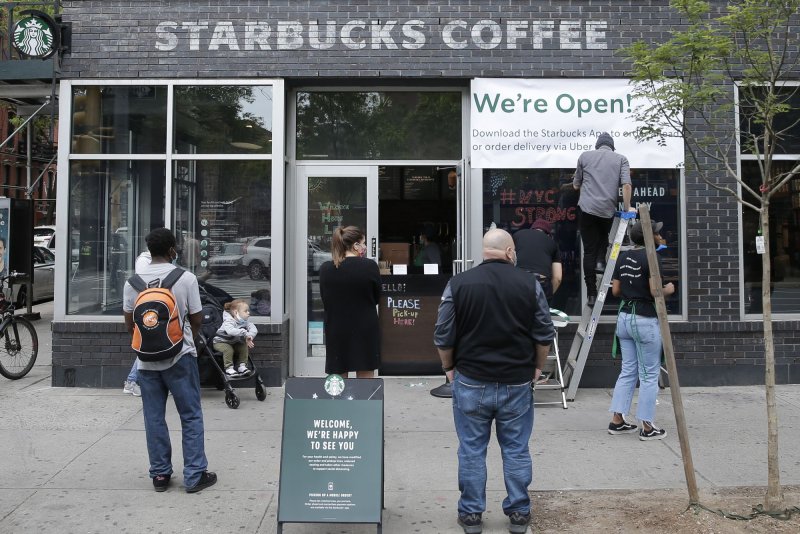
Report: Consumer spending falls 13.6 percent despite stimulus handouts
by Clyde HughesMay 29 (UPI) -- Consumer spending fell 13.6 percent in April despite personal income and disposable personal income increasing, the Bureau of Economic Analysis said Friday.
Economist said that is a sign that consumers are holding on to more of their money during the coronavirus pandemic.
The savings growth comes as more than 40 million U.S. adults filed for unemployment insurance since the start of the pandemic as state economies around the country established coronavirus restrictions to slow the virus.
The bureau said personal income increased $1.97 trillion in April and disposable income by $2.13 trillion, helped by federal stimulus payments. Spending by Americans decreased by $1.89 trillion.
"The April estimate for personal income and outlays were impacted by the response to the spread of COVID-19, as federal economic recovery payments were distributed, and governments continued with 'stay-at-home' orders," the bureau said.
"The full economic effects of the COVID-19 pandemic cannot be quantified in the personal income and outlays estimate for April because the impacts are generally embedded in source data and cannot be separately identified," it said.
Megan Greene, a senior fellow at the Harvard Kennedy School, told CNBC part of the problem is that spending opportunities are limited for Americans because of many businesses or either closed or have limited service.
"With shops all closed and everybody locked up, the 'shopportunities' have dried up," Greene said. "That speaks to a kind of demand shock."